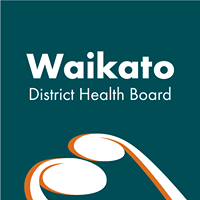26 February 2014
Midland Babies Benefit From Pepi-Pod Sleep Spaces
The innovative sleep spaces being offered to families of more vulnerable babies, to help reduce sudden infant deaths, are making a positive difference, especially for Māori, and especially in Midland, claims a report released today.
“This simple idea is rated highly by parents using the pods, and we are also encouraged by news of reducing infant deaths, especially in Midland,” said programme director, Stephanie Cowan.
The Pēpi-Pod Programme: 2013 Report describes the distribution of 1373 portable sleep spaces in 8 regions of New Zealand during 2013, as well as information from parents who used them.
“This is a great report with some really encouraging information on how, if we work hard with others, we can make a practical difference for those in need,” said Ditre Tamatea, General Manager, Te Puna Oranga (Māori Health Service), Waikato District Health Board.
Te Puna Oranga has led the Pēpi-Pod Programme in Waikato, in conjunction with the Midland Maternity Advisory Group, and has worked in partnership with the other DHBs across the Midland area.
Infant mortality statistics (all causes) for 2013, released last week by Statistics New Zealand, show that Midland was the only region to see a continuing fall in infant deaths during 2013 (from 61 to 51 deaths).
There was no change in infant deaths for the Northern region (106-106) and an increase for Central (from 42-50) and Southern (from 44 to 48). Infant death rates are now similar across all four regions of New Zealand, regardless of Māori birth rates.
Midland has the most concentrated supply of Pēpi-Pod sleep spaces in New Zealand. It is also the region with the highest proportion of Māori births (43% compared to 23%, 33%, 19% for Northern, Central and Southern regions respectively), and, therefore, the greatest prevention challenge because Māori infants are more at risk of sudden infant death, more commonly exposed to smoking in pregnancy and to sleeping with parents.
‘It cannot be claimed that the Pēpi-Pod Programme is the cause of the fall in deaths, for there are a lot of people working in various ways to protect babies, but it is heartening to see that the effort in Midland, in particular, by health teams and families, is in the right direction,” said Cowan.
“It seems that the programme supported parents in practical ways as well as with safety. They liked being able to have their babies close by during the day, as well as in the night, loved the convenience when traveling, visiting and moving about the house, and 76% found pods helped with settling their babies for sleep.
“This simple concept has supported parents to provide safe sleep for their babies within the context of their social and cultural norms.”
The report has been released to mark the anniversary of the Canterbury earthquake which propelled the programme into action out of concern for the lives of babies when living and sleeping conditions were disrupted.
The programme quickly spread from an emergency response to its current place as an integrated part of infant health and safety in some parts of New Zealand, with programmes establishing in Australia, and interest from the United Kingdom and the United States.
Table: Regional variations in infant deaths between 2012-2013 (all causes) (Statistics NZ, 2014)
| Region | Neonatal infant deaths | Post-neonatal infant deaths | Total | IMR/1000 live births | % Maori births |
| Northern | 69-68 | 37-38 | 106-106 | 4.4 | 23.4 |
| Midland | 38-33 | 23-18 | 61-51 | 4.4 | 43.3 |
| Central | 20-27 | 22-23 | 42-50 | 4.5 | 32.8 |
| Southern | 28-27 | 16-21 | 44-48 | 4.0 | 18.9 |
About
Change for our Children Limited
Change for our
Children Limited stands for different thinking – different
results. The company is in the business of social innovation
pursuing local solutions to global concerns, as they relate
to children. The persisting high rate of sudden infant death
in more vulnerable babies, despite an active health
workforce, has sparked the need for thinking outside the
square.
For more information about the Pepi-Pod Programme please visit www.pepipod.co.nz
About Waikato District Health Board and Health Waikato:
Waikato DHB is responsible for planning, funding and providing quality health and disability support services for the 373,220 people living in the Waikato DHB region. It has an annual turnover of $1.2 billion and employs more than 6450 people.
Health Waikato is the DHB’s main provider of hospital and health services. It has six groups across five hospital sites, three primary birthing units, two continuing care facilities and 20 community bases offering a comprehensive range of primary, secondary and tertiary health services.
A wide range of independent providers deliver other Waikato DHB-funded health services - including primary health, pharmacies and community laboratories.
ENDS



 NZ Rugby League: Kiwi Ferns Ready To Defend Their Pacific Championships Title In Thrilling Final
NZ Rugby League: Kiwi Ferns Ready To Defend Their Pacific Championships Title In Thrilling Final PHARMAC: Newly Funded Medicine To Benefit 110 More People With Thyroid, Liver, And Kidney Cancer
PHARMAC: Newly Funded Medicine To Benefit 110 More People With Thyroid, Liver, And Kidney Cancer Plunket: Plunket’s New One Stop Community Hub Opens In Dunedin
Plunket: Plunket’s New One Stop Community Hub Opens In Dunedin NZ College of Public Health Medicine: Treaty Principles Bill Will Harm Māori Health And Fuel Racial Division
NZ College of Public Health Medicine: Treaty Principles Bill Will Harm Māori Health And Fuel Racial Division SPCA: Concert For Animals - A Hit With Pets And Humans Too
SPCA: Concert For Animals - A Hit With Pets And Humans Too NZ Olympic Committee: NZOC Remembers Olympian #166, Marise Chamberlain
NZ Olympic Committee: NZOC Remembers Olympian #166, Marise Chamberlain